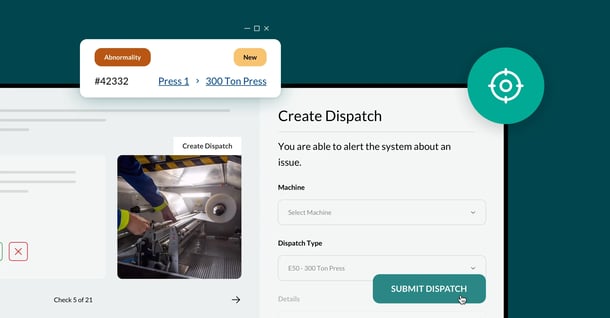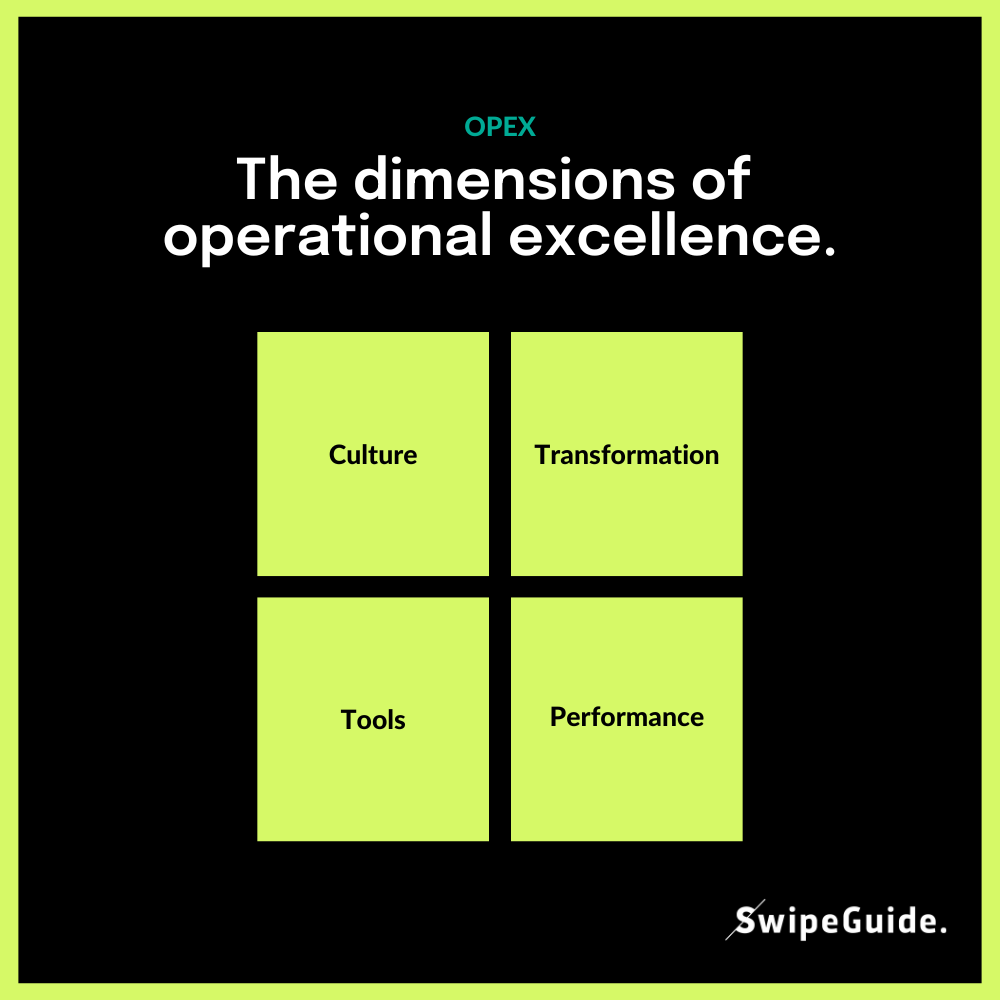

Empowering a Culture of Operational Excellence.
This is how you can empower a culture of operational excellence through performance review, standardization, leadership, and culture.
What does operational excellence (OpEx) mean to you and your organization?

- Some might say that it means striving for consistent results.
- Or that it means working hard every day to improve processes and procedures on the shop floor.
- Maybe to you, operational excellence is about listening to the shop floor experts and field service engineers when they voice their needs or suggest improvements.
In fact, any of those qualities contribute to operational excellence in a manufacturing setting. OpEx isn’t a single behavior or process. Rather - as our friends at Möbius would put it - it describes “a management strategy that strives to achieve consistent and reliable results.”
These strategies help improve efficiency and reduce downtime, increase employee engagement, and generally elevate the performance of daily operations.

Below, we’ll cover the basic steps of how your organization can empower operational excellence on the shop floor.
Performance review.
The performance review is an element of operational excellence, distinct from continuous improvement, that is designed to help companies plan and project their strategies to “translate vision into targets.”
- This process involves defining the activities, projects, and initiatives that will create scalable progress towards your organizations goals.
- Performance reviews focus on setting KPIs as standards, towards which processes and initiatives can work.
- It’s important to highlight your current performance (from an operational perspective) and compare it to your goals and standards.
- Standards are always important, especially when communicating goals. It’s essential that actions and processes are developed according to a standardized and democratically informed source of truth.
.png?width=1200&height=627&name=Operational%20excellence%20Continuous%20improvement%20(1).png)
Performance review plays an absolutely critical role in operational excellence because it provides the foundation for not only continuous improvement, but for the activities that actively empower a productive culture.
- Tools such as performance boards can provide a visual and practical overview of current performance and performance goals. They also provide a crucial opportunity for routine dialogue between operators and management about operational excellence.
- Question to ask: "was today a good day or a bad day?"
- In manufacturing, performance boards are usually physical boards located on the shop floor. As technology progresses, many have also been translated into digital boards.

Example of a physical performance board on a shop floor.
Standardization.
Setting standards and creating a culture that promotes standardization ensures that daily work is consistent, safe, and progresses towards a mutually agreed upon goal.

- Standardization is closely tied with continuous improvement. Without a way to capture and standardize procedures, improvements to performance will fade and decrease over time.
- Activities that promote standardization, such as KAIZEN events and the implementation of digital tools that can capture employee feedback, help to “lock in” improvements on the shop floor.
- Digital work instructions, used for daily work, can be a great way to simultaneously promote on-the-job learning and capture feedback about SOPs and procedures to improve standards.

Example of a digital standard operating procedure made in SwipeGuide.
Leadership and Culture.
But these initiatives aren’t practical or productive if leaders in the manufacturing industry don’t actively promote a culture of operational excellence through their behavior. Long term, sustainable success depends on a blend between process, results, and a positive culture.
- Culture is “the sum of behaviors, norms, and values.”
- Behavior such as celebrating successes, leadership modeling good behavior, and establishing and keeping expected routines can all contribute to a culture that promotes operational excellence.
In short, change and continuous improvement on the shop floor starts with leadership. If positive behaviors are modeled consistently by those in charge, then the rest of the organization will follow.
Operation excellence is a complex concept with a simple principle: it’s about putting processes and behavior in place that lead to consistent results and continuous improvement.
In today’s complex and fast-paced manufacturing industry, that means capitalizing on a range of innovative digital tools and lean initiatives to help our deskless workforce understand performance, capture standards, and create an open and sustainable culture that celebrates a positive feedback loop.

Want to learn more about empowering a culture of operational excellence?
👉 Webinar "Empowering a Culture of Operational Excellence", with Operational Excellence Coach Frédéric Loose of Möbius Business Redesign.
👉 Introduction to Impactful 5S Standard Operating Procedures.
👉 Top-Down is Out: Democratizing Knowledge with Lean Thinking
Author
Revisions
It's time to simplify frontline training
Work instructions, checklists, and skills management - all in SwipeGuide
- Cut training time by 50%
- SOC I and II compliant
Get to know us
SCHEDULE YOUR DEMOResources
-
1
How to empower your frontline with better instructional design. -
2
How to gain the edge in Industry 4.0 with smart manufacturing practices. -
3
How to make excellent digital work instructions. -
4
How to deliver continuous improvement at the frontline with Lean principles. -
5
How to capture, share, and improve expert knowledge with digital SOPs.



